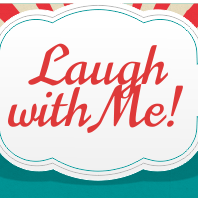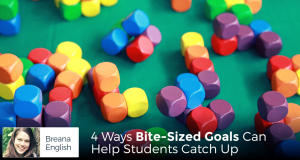Summary
Want to read more efficiently? Seton alumna Anna Eileen shares her favorite strategies that have made reading textbooks easier, and much more productive.The way my college class schedule is set up this semester, I have my two most important classes once a week for 2.5 and 4 hours each.
Because there is so much content to cover in these two classes, we are encouraged to spend a lot of time reading and preparing for class. Some of my classmates have said they find it difficult to read so much beforehand, and in the end, find themselves overwhelmed.
I remember so well that feeling from my homeschool days.
I would sit down and read biology or history and then when asked about it later by my mom, or when doing an assignment, would have absolutely no clue what I had read.
Besides the fact I had just wasted part of my school day, this inability to retain any information caused me to spend way too much time studying the material later on.
It wasn’t until I took a study skills class at my homeschool coop that I learned some strategies that made reading much easier, and much more efficient.
1. Go over the material first.
Say the assignment is to read pages 120-127 of your chemistry book. Do not sit down, start from page 120, and dutifully make your way through the reading.
Instead, take a moment to give yourself an overview of the chapter. Look at the headings and sections and a chapter outline if available. Read through the definitions. See if anything in the chapter is familiar to you, or if it reminds you of something you have read earlier.
Once you have spent a few minutes preparing yourself in this way, it’s time to start reading.
2. Do something besides read.
Whether you prefer to outline, highlight, make flashcards, or take notes, do something else besides reading.
One caveat with this that I think is important to address is that it is better to wait until after you have finished reading to highlight, take notes, etc.
This is for two reasons. First, you may be so distracted trying to take notes that you cannot give the reading the attention it deserves.
Second, it’s only when you have read the whole assignment you know what is important to remember.
3. Read a manageable amount at a time.
Ever notice how Seton allows a lot of time in the lesson plans for reading? That’s because they know that you cannot retain what you read if you try to read too much at a time, especially with textbooks.
Try to stay on top of your reading so you don’t find yourself trying to cram in two chapters of biology. However, sometimes, needing to catch up is unavoidable. In such cases, try to take periodic breaks to quiz yourself on the previous section.
When I must read a lot of material at a time, I need to occasionally close my eyes and take a deep breath to give my eyes and brain a quick break before continuing to read.
4. Slow down.
I went through a phase a little while ago when I wanted to learn how to speed read.
I thought it would save me so much time and it would also be cool to tell people about it. Much to my disappointment, after some research, I learned that speed reading isn’t really a thing (people on the internet would be happy to take your money to teach you, though!).
‘Speed reading’ might have some value, but it’s not a good way to try to learn material. You swiftly skim the page, looking for nouns and verbs to jump out at you. It all get stored in your short term memory, and then gets dumped within a half hour. You only remember the things that strike you, when you slow down to absorb them properly.
It’s therefore important to take your time when reading textbooks.
You may need to reread certain sentences or paragraphs, and that’s okay. It might be a little slower, but it’s certainly more efficient to read slowly and carefully. Then you can spend less time studying later.
Seton students, what would you add to this list?

 Seton Magazine Catholic Homeschool Articles, Advice & Resources
Seton Magazine Catholic Homeschool Articles, Advice & Resources














































